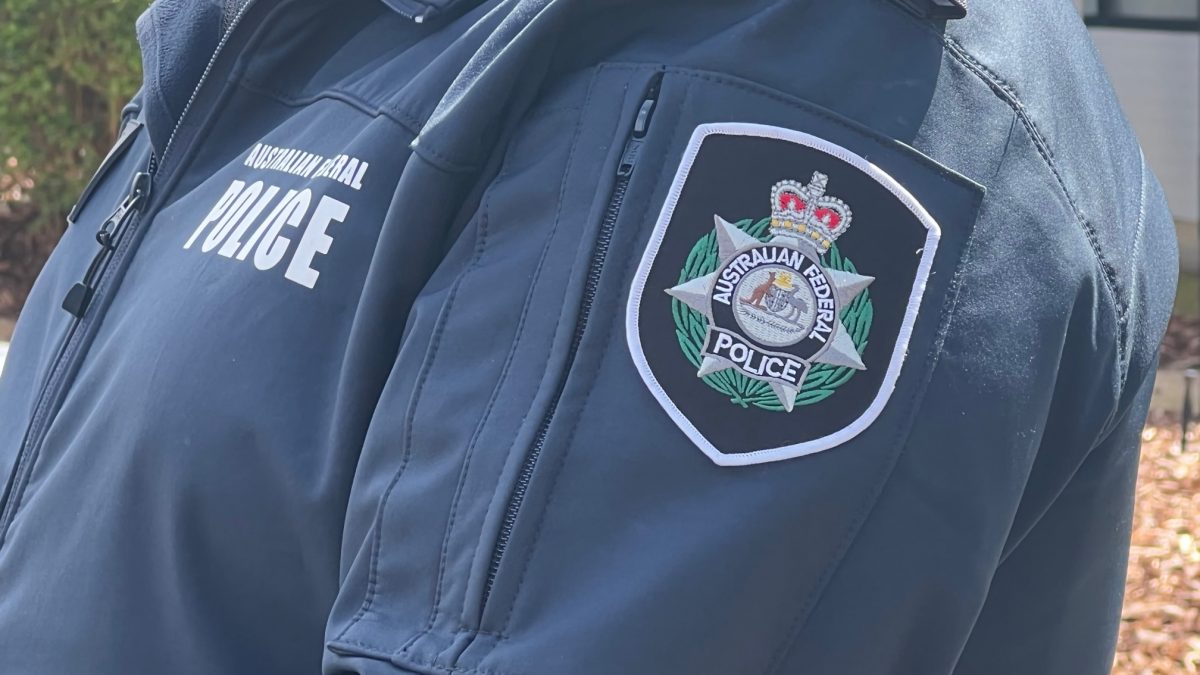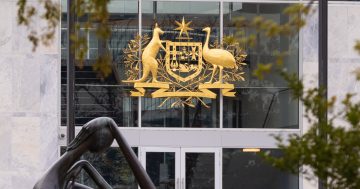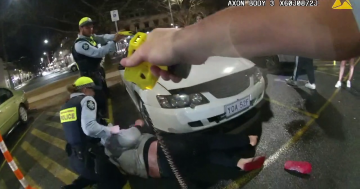
Justin Joseph Glavinic had tried to sue four police officers in the ACT Supreme Court. Photo: Claire Fenwicke.
A man has failed in his attempt to sue several police officers after he alleged they unlawfully forced their way into his home and assaulted him.
Justin Joseph Glavinic, then aged 39, and two other people took the Commonwealth Government and the four officers to the ACT Supreme Court in a hearing that was fought earlier this year over the incident from 14 July 2018.
Justice David Mossop said police had gone to his home in Forde after hearing radio messages that suggested a domestic violence incident could be in progress.
When the officers were not allowed to enter, they forced their way in.
The judge said there was then a “very significant altercation” between Mr Glavinic and the police, which had been alleged to have involved battery and unlawful imprisonment.
On Friday (1 December), he ultimately said that as the case had been filed past the six-month statutory limit of when the law required it to be done, he found in favour of the Commonwealth and the officers.
However, he also said in case he was wrong, he had considered the claims and made an assessment of the damages.
The judge said Mr Glavinic had become “increasingly paranoid about police” after being forcibly arrested and tasered in 2017.
On the day of the incident, a neighbour called police to report a “domestic disturbance” and that he thought a woman had been calling, “Don’t touch me, don’t touch me”.
Police arrived and spoke to Mr Glavinic at his home, but he said it was just him and one other person there and everything was fine before he closed the door.
When police tried to push the door open, he resisted, then he and the officers got into a melee.
Mr Glavinic alleged that after the officers forced their way inside, he was forced to the ground, sprayed with capsicum spray, hit with a baton, tasered, kicked in the face, put into a spit hood and handcuffed.
He argued this was unlawful battery as the officers had no lawful justification for using force and any force used was “disproportionate”.
However, the officers argued they were entitled to enter the home and the force they used to arrest him was necessary and reasonable.
Justice Mossop said Mr Glavinic had “violently resisted” the officers during his arrest. He thought his evidence about the entry and the melee was “unreliable”, partly due to his pre-existing paranoid beliefs about police and his sense of injustice about the incident.
The judge found the police officers had been mostly reliable or credible witnesses.
“I do not find that the force which was deployed by the officers in attempting to arrest Mr Glavinic was unreasonable in the circumstances,” he said.
“The techniques used to restrain him were consistent with police training.”
He was also satisfied that each of the officers held the belief that it was necessary to enter the home immediately.
“The information that they had was consistent with (amongst other things) there having been a family violence incident of some sort,” Justice Mossop said.
While he resolved the case in favour of the defendants, he said Mr Glavinic, who had worked as a painter before this incident, would have been awarded over $2 million in damages if he had been successful.
The three plaintiffs were ordered to pay the defendants’ legal costs of the proceedings.





















